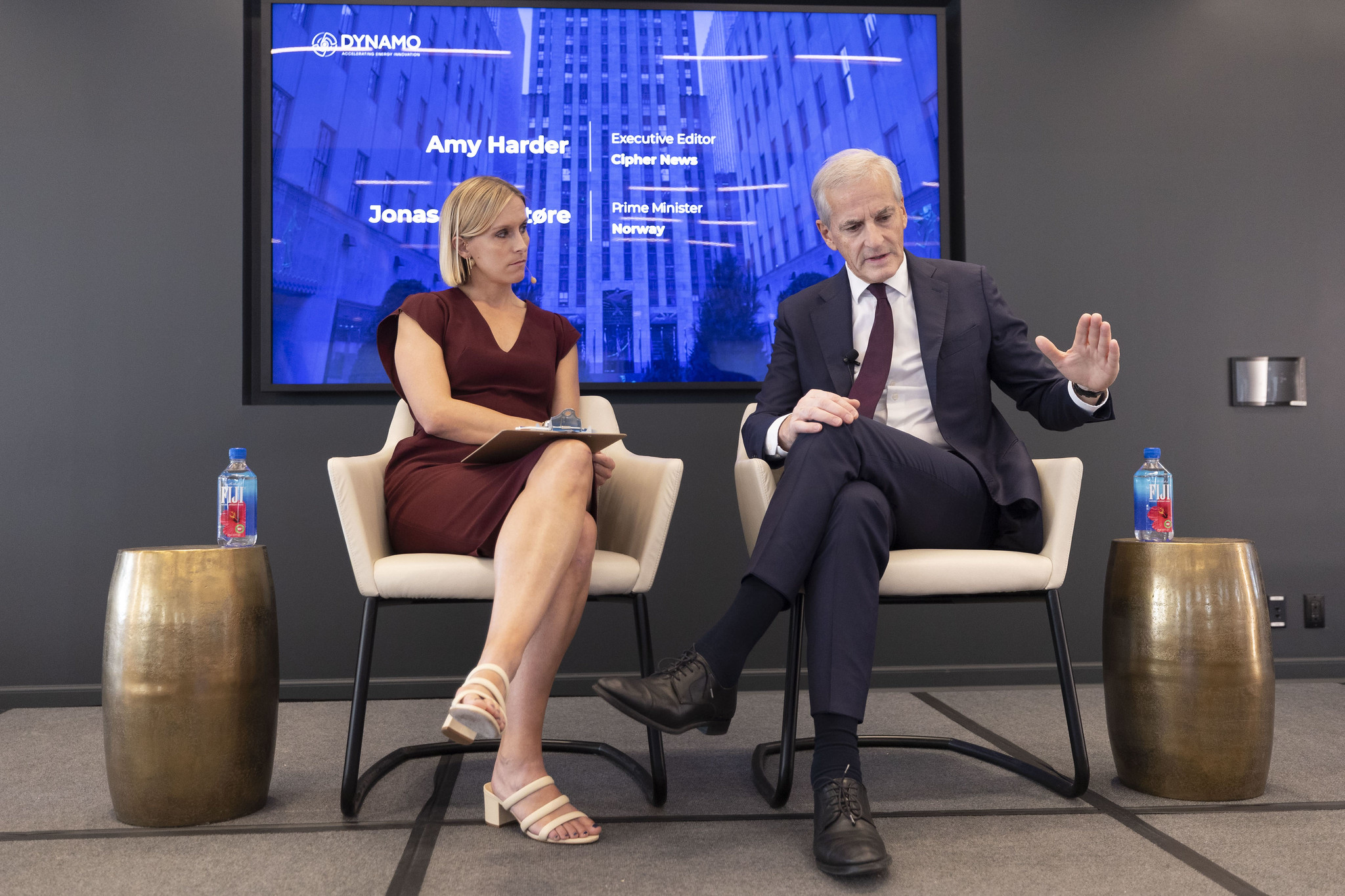Norway leader on deep-sea mining, carbon capture and wind woes
Latest News
NEW YORK CITY — Faced with mounting criticism on both fossil fuels and cleaner energy, Norwegian Prime Minister Jonas Gahr Støre expressed adamance his nation — and the world — will make progress tackling climate change, in an exclusive, live interview with Cipher last week.
This Nordic country’s influence in the world’s energy and climate debate is growing. Although not a member of the European Union, Norway rapidly and significantly increased its natural-gas exports to Europe following Russia’s invasion of Ukraine in early 2021, which broke the bloc’s longtime dependence on Russian fuel. At the same time, Norway is increasingly investing its oil and gas wealth into climate technologies, ranging from carbon capture to hydrogen, prompting controversies.
Støre spoke candidly about his perspectives on climate and energy during an interview with Cipher’s Executive Editor Amy Harder at the Dynamo Energy Transition Summit, held on September 19 as part of New York Climate Week.
Here are the key takeaways from their conversation:
Deep-sea mining for critical minerals
This summer, the Norwegian government proposed opening a large swath of its territorial waters to mining for copper, manganese and cobalt, minerals that are a “critical component to the industrial transformation,” said Støre.
In recent weeks, however, some Norwegian lawmakers called for a 10-year delay so that the environmental impacts of deep sea mining could be studied.
The Norwegian premier said he is confident the industry in Norway can do it in a safe and sustainable way. The alternative is for Norway to rely on other countries like the Democratic Republic of Congo or on China, he said. China has a near monopoly on these minerals, he said.
When pressed on whether he supports the delay, Støre said a short “no.” He then questioned the arbitrariness of the 10-year delay and said the decision will ultimately lie with the Norwegian parliament.
Role of oil-producing nations in climate discussions
Støre dismissed controversy around the oil-rich United Arab Emirates hosting the upcoming United Nations climate conference (known as COP28), and the broader role of other oil-rich nations. “We are dealing with the world as it is,” Støre said.
“I would rather have the Emiratis and the Saudis take responsibility because they will be watched by the entire world community,” Støre said. “Rather than saying these oil producing countries in the Gulf need to be on the outside, we need to bring them along. These are countries with the largest solar potential in the world and we need to invest in this.”
Støre went so far as to suggest that the next COP summit should be hosted by China: “We’d then have a major big polluter, at the same time, China is leading on solar.”
Role of fossil fuels in the future
Støre predicted a backlash would occur if societies moved too fast away from fossil fuels, referring to the energy crisis in Europe sparked by Russia’s invasion. But he also said Norway’s natural gas supplies could eventually begin decreasing as soon as 2030.
“We peaked on our oil just after 2000; it’s on its way down,” Støre said. “Gas, as we approach 2030, probably will be on its way down.”
He said he hopes his country’s large oil and gas workforce can pivot to renewable energy, a prospect facing many other nations staring down similar transitions: “When we build offshore floating wind [platforms], which is very complex, we can draw on the engineers who built the offshore oil and gas platforms.”
Carbon capture
Støre defended technology that captures emissions from polluting facilities, including to produce hydrogen from natural gas.
“Frankly speaking, you know, I belong to those who say if we can produce [natural gas] at absolutely low emissions and produce hydrogen with capturing CO2, I don’t have an objection to it,” said Støre.
In the perennial debate about whether addressing climate change should be about reducing emissions or reducing fossil fuels, the prime minister indicated he was in the former camp.
The problem is not with the gas itself, but with methane and CO2 emissions, he said. “If we can deal with that, I think [natural gas] can still help us with the hydrogen transition.”
He acknowledged that carbon capture technologies are expensive but remains confident Norway can demonstrate the utility of CCS and export the country’s approach to the rest of the world.
Engagement with indigenous people
At least 40% of Norway’s wind energy potential lies in the northern part of the country, where the indigenous Sami people reside. Sami activists have been protesting turbines built on land used traditionally by Sami reindeer herders.
“We have obligations under international treaties that have to be met and respected and can be conflictual,” Støre said. “My point is that if we can have careful dialogue and good plans that balance, we can reach it because the alternative is to say there will be nothing.”
He went on: “Onshore wind is the lowest hanging fruit to get more power in the renewable way and we need to be creative.” And economically “local communities have to benefit more” from these projects going forward.